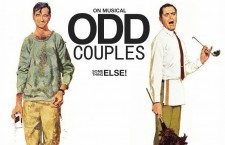Since Prince’s untimely death at 57, peers and fans have struggled to define Prince’s specific genre. Was it hip hop, rock, pop, or funk?
Indeed, Prince never fit into any category, and that suited him just fine. He dabbled in various styles; one can hear a rock-oriented song like “Dinner with Delores” and not believe it comes from the same musician who composed the funky “Kiss.” Playing more than two dozen instruments, writing and arranging his own material, launching others’ careers: Prince Rogers Nelson occupies a special place in music history.
The best way to celebrate Prince’s vast legacy is by listening to his catalog. Rather than share intimate details of his life through interviews, Prince told fans everything they needed to know through his confessional lyrics. They reveal his struggle with joy and despair, the sacred and profane, the spiritual and carnal.
Well-known hits like “1999” and “When Doves Cry” may still receive the most radio airplay, but the lesser-known songs listed below – including deep cuts, b-sides and sometimes-overlooked singles – illustrate his vast talents just as effectively …
“UPTOWN” (DIRTY MIND, 1980)
Disco, Prince style: the bass and drums place “Uptown” clearly in 1970s dance music, yet the keyboards and Prince’s slightly gritty voice firmly root the track in the early ’80s. At first, it seems like a typical seduction scene, until the woman asks “are you gay?” Surprised, he replies “no, are you?” He then foreshadows the message of freedom in 1981’s “Sexuality”: “We don’t let society tell us how it’s supposed to be.” In this free space, “white, black, Puerto Rican” party together; Prince then almost screams what would become a central theme of his music: “it ain’t about no downtown, nowhere-bound, narrow-minded drag / It’s all about being free.”
“SEXUALITY” (CONTROVERSY, 1981)
“Let me take you to another world,” Prince promises in “Sexuality.” This world involves no money, instead celebrating differences and lifestyle choices. He transforms the lustful song into a statement against prejudice, explicitly calling for a sexual and political revolution. “Stand up, organize!” he chants over a frantic beat. In the track Prince defies our expectations, delivering a message not only about sex but freedom.
“HOW COME U DON’T CALL ME ANYMORE” (B-side to ‘1999’ SINGLE, 1982)
One of Prince’s amazing qualities included treating fans to quality B-sides. Thus, listeners who bought the “1999” single discovered this incredibly raw treasure. Featuring Prince in full falsetto mode, accompanying himself on a gospel-tinged piano, the song exudes pain and longing. As his voice echoes on the word “please,” you can picture him “down on his knees, begging you” vividly.
“DELIRIOUS” (1999, 1982)
A warmup to “Let’s Go Crazy,” “Delirious” is about a party, with an early ’80s new wave twist. Try to get that keyboard-powered melody out of your head after hearing this song.
“EROTIC CITY” (B-side to ‘LET’S GO CRAZY,’ 1984)
Prince delivers yet another outstanding B-side with this companion to “Let’s Go Crazy.” Pulsating with sexuality as well as deep funk, “Erotic City” contains another key ingredient: Sheila E, a then-largely unknown talent Prince had discovered. Her sultry delivery perfectly matched Prince’s enhanced vocals, and thus began a collaboration that would last for decades.
“BABY I’M A STAR (PURPLE RAIN, 1984)
While difficult to choose just one outstanding song off the Purple Rain soundtrack, this blazing rocker demands more attention. His ebullient performance of “Baby I’m A Star” concludes the movie, cementing his status as an electric presence. “Baby I’m a star / Might not know it now,” he insists, even though “I ain’t got no money / But honey I’m rich on personality.” Exuding confidence, he screams that “I don’t want to stop, ’til I reach the top.” The explosive track (complete with his trademark falsetto cry) radiates energy and pure enjoyment.
“POP LIFE” (AROUND THE WORLD IN A DAY, 1985)
The driving drums propel “Pop Life,” a preview of the full-blown political overtones of “Sign o’ the Times.” Prince unflinchingly questions how people cope with life’s obstacles. “Everybody can’t be on top” he proclaims, then condemns an unnamed person for drowning his/her sorrows in drugs. “What you putting in your nose? / Is that where all your money goes?” he asks. “The river of addiction flows, you think it’s hot / But there won’t be no water / When the fire blows.” Dig it, indeed.
“MOUNTAINS” (PARADE, 1986)
An underrated selection from Parade, “Mountains” features epic production and arrangement apropos to the song’s title. Alternating between falsetto and his natural range, he assures his lover that love can overcome any obstacles, even the “mountains and the sea.” Find the 12-inch version for the extended instrumental breaks: horns and guitars appropriately soar as high as mountains.
“SOMETIMES IT SNOWS IN APRIL” (PARADE, 1986)
The profoundly sad Parade track has gained added resonance since his death, with D’Angelo’s recent performance on the Tonight Show transforming it into a eulogy for the fallen singer. As Prince accompanies himself on piano, he mourns the loss of a friend, using winter as a metaphor for grief. However, the unusual chord change during the line “Sometimes I wish that life was never ending” defies the listener’s expectations, creating a disorienting effect before the most emotion-packed lyric: “And all good things they say, never last.”
“ANOTHERLOVERHOLENYOHEAD” (PARADE, 1986)
This fun single tells the story of a man pleading with his lover to stop seeing other men. “You need another lover like you needed a hole in your head!” he informs her. Adding his typical braggadocio, “You know there ain’t no other / That can do the duty in your bed.” Unlike other songs, “Anotherloverholenyohead” ends with a jazzy coda, another example of how Prince blended various genres to create his own unique sound.
SIGN O’ THE TIMES (SIGN O’ THE TIMES, 1987)
The Beatles permeated Prince’s 1985 album Around the World in A Day, but one can imagine John Lennon recording this overtly political song. Sadly, its stories of drug addiction, violence, poverty, disease and war have changed little in almost 30 years. Prince’s straightforward vocals bluntly communicate that these “signs of the times” must change and its funky baseline places an exclamation point on his central message: “hurry before it’s too late.”
“ALPHABET ST.” (LOVESEXY, 1988)
A fusion of funk and soul sprinkled with a liberal amount of innuendo, “Alphabet Street” involves a lyrical twist. At first Prince seems full of bravado, announcing he will easily seduce the next woman he meets. Once he accomplishes this, he picks up the woman in his father’s “vintage Thunderbird” and drives her to Tennessee. After they arrive, however, he loses his nerve, claiming to not be rude and instead wants to “watch.” His declaration of “putting the right letters together to make a better day” further cofound. Then again, Prince enjoyed mystery, and continually challenged listeners with opaque lyrics.
“MONEY DON’T MATTER 2 NIGHT” (DIAMOND AND PEARLS, 1991)
Perhaps his most commercial album since Purple Rain, Diamonds and Pearls spawned numerous hits, most notably “Cream” and the title track (along with the raunchy “Gett Off”). However, this smoother composition questions the true value of money how it corrupts and destroys lives. “Just when you think you’ve got more than enough / That’s when it all up and flies away,” Prince croons. “That’s when you find you’re better off / Making sure your soul’s alright.” “Money Don’t Matter 2 Night” contains a very important message that will never become passé.
“7” (LOVE SYMBOL ALBUM, 1992)
By 1992, Prince had changed his name to a symbol to protest his record label. Yet during this turbulent time he created some spiritual music such as the Indian-inflected “7.” He imagines a land of peace and equality, and anyone who “stands in the way of love” will be eliminated—not through violence, but intellect. Perhaps referring to the seven deadly sins, he describes seeing an angel providing the key to conquering evil: “words of compassion, words of peace.” The exquisite production enables the listener to envision the “new city with streets of gold,” clearly referring to heaven.
“I HATE U” (THE GOLD EXPERIENCE, 1995)
Filed under the “should have been a hit” category, this slow burner really cooks when Prince interrogates his cheating lover: “Now raise your right hand / Do U swear 2 tell the whole truth / Not the half truth / Like U used 2 so help U God?” he angrily chants. The soaring guitar solo at the end summarizes the argument better than any attorney ever could.
“MUSICOLOGY” (MUSICOLOGY, 2004)
The funkiest, most joyful musical lesson you’ll ever receive, “Musicology” celebrates Prince’s idols – Earth Wind and Fire, Sly and the Family Stone, James Brown — but he also salutes hip hop with shoutouts to Chuck D and Jam Master Jay. “Kick the old school joint for the true funk soldiers,” Prince chants in the chorus, declaring himself a master general of the genre.
“ILLUSION, COMA, PIMP AND CIRCUMSTANCE” (MUSICOLOGY, 2004)
Funk meets hip hop in this down and dirty track, the scratchy guitar, unusual melody, and popping bass telling the story of a pimp grooming a prostitute. As she gains the upper hand, however, Prince questions “who’s pimpin’ who?”
“BLACK SWEAT” (3121, 2006)
James Brown clearly influenced Prince in sound and stage presence, and nowhere was it more evident than this dance floor grinder. Only he could combine sex, dance, and black pride in one track.
“BREAKFAST CAN WAIT” (ART OFFICIAL AGE, 2014)
Who knew hotcakes, honey, coffee, grits and gravy, cheese, eggs, and jam could sound so sexy? Popping guitar and jazz-inflected chord changes frame Prince’s playful voice; he slyly seduces his lover, persuading her to postpone breakfast and work for — well, you know.
- How John Lennon Came Roaring Back on the Beatles’ White Album - November 22, 2023
- Five ‘With the Beatles’ Deep Cuts That Illustrate Their Lasting Debt to R&B - November 20, 2023
- Five Must-Hear Deep Cuts from the Beatles’ ‘Past Masters’ - March 7, 2023



